Theology of History
 |
 |
 |
 |
 |
 |
 |
The Judgment of Nations - XI
Bl. Francisco Palau,
‘I Go Where the Glory of God Calls Me’
We left Blessed Francisco Palau, the great counter-revolutionary Carmelite Prophet (Part I), in exile in France after the defeat of the Carlists in the First War in 1840. For 12 years he lived as a hermit in a grotto in the woods surrounding the Sanctuary of Notre Dame de Livron in southern France.
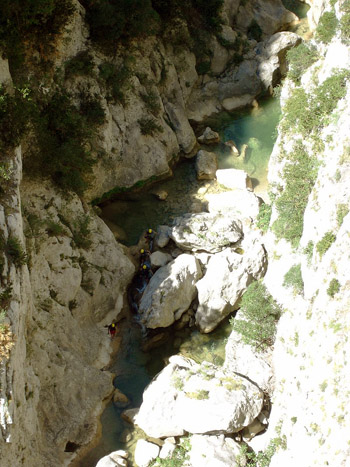 Once again he surrendered himself to his beloved isolation from the world, wrapped in contemplation, prayer and meditation on Revelation. But this is only one dimension of the counter-revolutionary Prophet. Far from the world, he nonetheless closely followed the affairs of the day, and he did not fear to speak out to warn the people of the evils of the Revolution he saw spreading in the political and social life of the times.
Once again he surrendered himself to his beloved isolation from the world, wrapped in contemplation, prayer and meditation on Revelation. But this is only one dimension of the counter-revolutionary Prophet. Far from the world, he nonetheless closely followed the affairs of the day, and he did not fear to speak out to warn the people of the evils of the Revolution he saw spreading in the political and social life of the times.
Later he would write how this insight into events that he was given was not just supernatural: “The events are linked to one another, in the past, present, and future. Together they form the history of human society. In view of the antecedents, we judge by today what tomorrow will be. This judgment is the property of any man with foresight.” (1)
Further, a group of disciples gathered around him, giving rise to a nucleus of hermits that were the first seeds of the future branch of the Carmelite Order he would found.
The School of Virtue & another exile
Returning from exile to Barcelona in 1851 into the very hub of the seething communist agitation, Bl. Palau founded the School of Virtues, a bold and intelligent catechetical-apologetic work that gave much fruit.
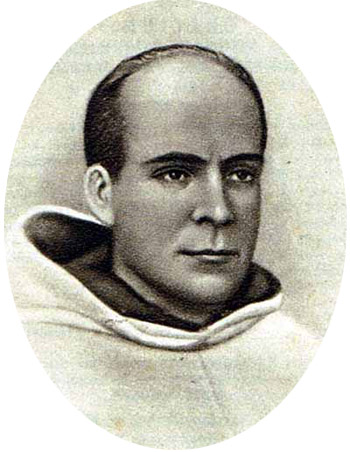 The teachers, guided by him, gave lessons in Catholic doctrine and refuted arguments against Catholic teaching, especially the errors of Socialism, Communism and Atheism. At the end of the class an Act of Faith was made based on the theses presented, and the teacher concluded the session with a brief talk.
The teachers, guided by him, gave lessons in Catholic doctrine and refuted arguments against Catholic teaching, especially the errors of Socialism, Communism and Atheism. At the end of the class an Act of Faith was made based on the theses presented, and the teacher concluded the session with a brief talk.
Malicious leftist press articles and anonymous inflammatory pamphlets were spread that slandered the work of Bl. Palau. He was accused of dividing the working class, of raising up workers against the government, of celebrating sinister services, of concocting infamous Jesuit conspiracies and of practicing what later demagogues would call “brainwashing” on poor victims, who were “seduced and mentally enslaved” in confessionals and sacristies. (2)
The impression left by his School of Virtues among the people was so strong that, even after it closed, the propaganda against it continued.
On the island of Vedrá
Brought to trial by the liberals, Bl. Palau was condemned and forced into exile again, this time on the Island of Ibiza in the Balearic Islands, where he arrived in April of 1854.
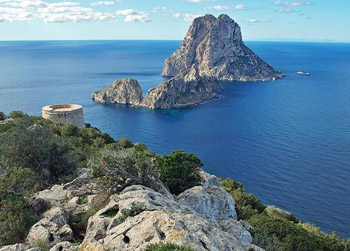 In the Balearic Islands Bl. Palau founded the Congregation of Carmelite Brothers and Sisters (1860-1861). He also preached extremely popular missions on the islands and the peninsula. Everywhere he spread Marian devotion and warned the people against the emerging Communism and Secularism that was already dominating many once Catholic ambiences, especially in the cities.
In the Balearic Islands Bl. Palau founded the Congregation of Carmelite Brothers and Sisters (1860-1861). He also preached extremely popular missions on the islands and the peninsula. Everywhere he spread Marian devotion and warned the people against the emerging Communism and Secularism that was already dominating many once Catholic ambiences, especially in the cities.
The revelations he received in his cave on the majestic barren Vedrá Island were truly prophetic. He was given to know the mission assigned to him from God to fight the Revolution in his time, especially as an exorcist against the many demons infesting the people of that era of revolt against authority.
The Angel of the Apocalypse appeared to him in his cave on that barren rock island and told him his mission: “I am the Angel spoken of in Chapter XX of the Apocalypse. The custody of the banner of Carmel has been entrusted to me along with the sons of this Order. … I come to you sent by God to instruct you about the future of the Order to which you belong so that you may know the mission that you must fulfill and its form.”
“You are the great prophet of the sons of the Order; you will be my finger and the finger of God, and my arm in the battles against the Devils and against the Revolution. That your Faith may not falter in the day of battle, God has sent me to you who live in the deserts and are attentive to His voice, to instruct you on the matter and purpose of the office of Exorcist.” (3)
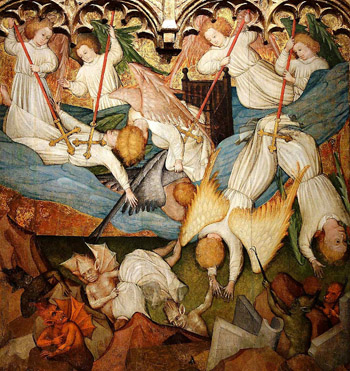 Spurred on by heavenly instruction and his realization that the powers of the Devil would be unleashed with even greater fury in the future days which God had shown him, he traveled to Rome in 1866 and again in 1870 to present to Pope Pius IX the need for a special order of exorcist priests. Also he asked that the full powers of exorcism be granted to every priest.
Spurred on by heavenly instruction and his realization that the powers of the Devil would be unleashed with even greater fury in the future days which God had shown him, he traveled to Rome in 1866 and again in 1870 to present to Pope Pius IX the need for a special order of exorcist priests. Also he asked that the full powers of exorcism be granted to every priest.
He realized that Satan, “the Father of the Revolution,” had to be expelled from the world. That Revolution, he stated, started with the first revolt of Satan against God and would end with the victory of God in the Latter Times:
“Satan is the father of the Revolution. The Revolution is his work. He began it in Heaven, and it has perpetuated itself among men from age to age.
“For the first time after 6,000 years it has dared to take on, in face of Heaven and Earth, its true and satanic name: Revolution! Its motto is that of the Devil himself: ‘I will not obey.’ Satanic in its essence and intending to overthrow all authority, its ultimate goal is the total destruction of the Reign of Jesus Christ on earth.” (4)
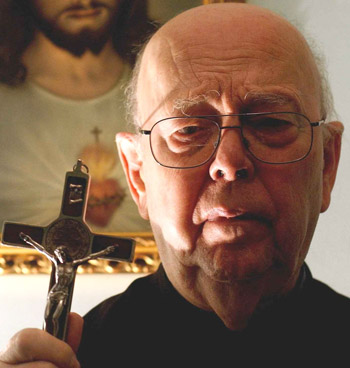 Palau's plans were received favorably by the Pope and he was allowed to address the Bishops at Vatican Council I. Sadly, however, the Council was interrupted with the military invasion of Rome, and the matter was dropped. In fact, he predicted this violent stop of the Council:
Palau's plans were received favorably by the Pope and he was allowed to address the Bishops at Vatican Council I. Sadly, however, the Council was interrupted with the military invasion of Rome, and the matter was dropped. In fact, he predicted this violent stop of the Council:
“What will the Council accomplish?” He answered: “It will organize the apostolate, but the invisible forces [inside the Church], working with the political powers of the world, will impede the preaching of the Catholic truths, and by brute force will prevent this mission from bearing its fruit.” (5)
He also predicted that the Pope would be despoiled of his States, that Queen Isabel II would be dethroned and that Barcelona would suffer a severe plague of cholera. History has ratified these and many other of the prophecies of the celebrated Carmelite. (6)
Francisco Palau has been called the greatest exorcist in History. He only performed solemn exorcisms when authorized by the Bishop of the diocese, a permission often denied because of the corruption of many of the Prelates. But in those cases it was not needed: The devils literally fled in his presence.
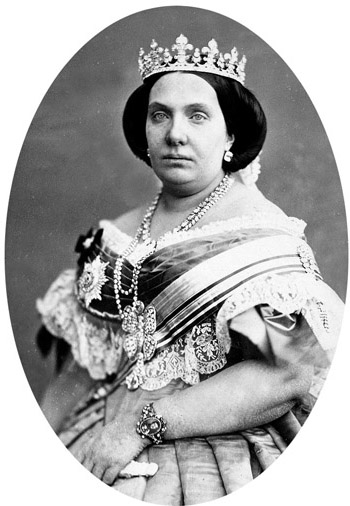 Bl. Palau believed that Satan, the father of the Revolution, had to be expelled from the world. Foreseeing that his ideal would not be realized, Bl. Palau predicted that God would provide an extraordinary assistance in the future. God would give to the world a “Restorer” in the Latter Days, a man “connected in some way to the Carmelite order who would be given “the mission of Elias.”
Bl. Palau believed that Satan, the father of the Revolution, had to be expelled from the world. Foreseeing that his ideal would not be realized, Bl. Palau predicted that God would provide an extraordinary assistance in the future. God would give to the world a “Restorer” in the Latter Days, a man “connected in some way to the Carmelite order who would be given “the mission of Elias.”
”He will call down the Chastisement upon a sinning mankind, expel the demons and inaugurate the era of peace that will initiate a new and glorious time for the Church and society. (7)
Miracles & return to Spain
With the prophecies and exorcisms miracles came. His small pot over the stove would refill for those who came to him hungry. He touched the ears of a deaf man in the Plaza de Catalonia with his fingers and the man was instantly cured. A woman, crippled and paralyzed, came to his Hermitage and left walking and cured. In Aitona he freed the town from numerous plagues, a drought and cholera. Many miracles also occurred through his imposition of the holy scapular.
Besides the foundation of a branch of the Carmelite Order, he also preached popular missions on the Balearic Islands, spreading Marian devotion as he went. It was here that he founded the island's first Marian Sanctuary honoring Our Lady of Virtues, to whom he had a special devotion.
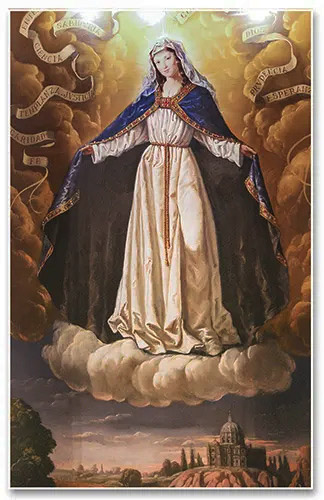 Bl. Palau directed everything to the Blessed Virgin Mary because, he said, she possesses all the virtues in the highest and most exalted degree. He always insisted on Our Lady’s intimate link to the Church, repudiating the Protestantism that was spreading on the Continent. He wrote: “To see Mary is to see the Church, to contemplate Mary is to contemplate the Church, to love Mary is to love the Church.” (9)
Bl. Palau directed everything to the Blessed Virgin Mary because, he said, she possesses all the virtues in the highest and most exalted degree. He always insisted on Our Lady’s intimate link to the Church, repudiating the Protestantism that was spreading on the Continent. He wrote: “To see Mary is to see the Church, to contemplate Mary is to contemplate the Church, to love Mary is to love the Church.” (9)
In 1861 a royal edict allowed his return to Spain, and there Fr. Palau preached the Lenten sermons in the Church of San Isidro before the nobility of Madrid and Queen Isabel II, who had become more conservative under the guidance of St. Anthony Mary Claret, former Archbishop of Cuba.
Now the Queen welcomed the once reviled Carmelite Prophet and gave him permission to preach missions throughout Spain. From the largest city to the smallest hamlet, from gilt pulpits to the poorest chapels, Fr. Palau addressed nobles and peasants, rich and poor, explaining to them the great truths of the Faith, exhorting them to fight the Revolution and the Communism that was infiltrating the country, and explaining the angelic and demonic influences in daily life.
In the next article we will look at his prophecies about the defeat of Satan in the Latter Times, the great Restorer sent by God in those times and the era of peace to be established after the defeat of Satan.
Continued

He retired to a cave in a gorge near the Sanctuary of Notre Dame de Livron
Later he would write how this insight into events that he was given was not just supernatural: “The events are linked to one another, in the past, present, and future. Together they form the history of human society. In view of the antecedents, we judge by today what tomorrow will be. This judgment is the property of any man with foresight.” (1)
Further, a group of disciples gathered around him, giving rise to a nucleus of hermits that were the first seeds of the future branch of the Carmelite Order he would found.
The School of Virtue & another exile
Returning from exile to Barcelona in 1851 into the very hub of the seething communist agitation, Bl. Palau founded the School of Virtues, a bold and intelligent catechetical-apologetic work that gave much fruit.

‘I will go where the glory of God calls me’ - Blessed Francisco Palau (1811-1872)
Malicious leftist press articles and anonymous inflammatory pamphlets were spread that slandered the work of Bl. Palau. He was accused of dividing the working class, of raising up workers against the government, of celebrating sinister services, of concocting infamous Jesuit conspiracies and of practicing what later demagogues would call “brainwashing” on poor victims, who were “seduced and mentally enslaved” in confessionals and sacristies. (2)
The impression left by his School of Virtues among the people was so strong that, even after it closed, the propaganda against it continued.
On the island of Vedrá
Brought to trial by the liberals, Bl. Palau was condemned and forced into exile again, this time on the Island of Ibiza in the Balearic Islands, where he arrived in April of 1854.

Vedrá Island off the Island of Ilbiza
The revelations he received in his cave on the majestic barren Vedrá Island were truly prophetic. He was given to know the mission assigned to him from God to fight the Revolution in his time, especially as an exorcist against the many demons infesting the people of that era of revolt against authority.
The Angel of the Apocalypse appeared to him in his cave on that barren rock island and told him his mission: “I am the Angel spoken of in Chapter XX of the Apocalypse. The custody of the banner of Carmel has been entrusted to me along with the sons of this Order. … I come to you sent by God to instruct you about the future of the Order to which you belong so that you may know the mission that you must fulfill and its form.”
“You are the great prophet of the sons of the Order; you will be my finger and the finger of God, and my arm in the battles against the Devils and against the Revolution. That your Faith may not falter in the day of battle, God has sent me to you who live in the deserts and are attentive to His voice, to instruct you on the matter and purpose of the office of Exorcist.” (3)

The first revolution began with Satan, who was defeated in the first battle
He realized that Satan, “the Father of the Revolution,” had to be expelled from the world. That Revolution, he stated, started with the first revolt of Satan against God and would end with the victory of God in the Latter Times:
“Satan is the father of the Revolution. The Revolution is his work. He began it in Heaven, and it has perpetuated itself among men from age to age.
“For the first time after 6,000 years it has dared to take on, in face of Heaven and Earth, its true and satanic name: Revolution! Its motto is that of the Devil himself: ‘I will not obey.’ Satanic in its essence and intending to overthrow all authority, its ultimate goal is the total destruction of the Reign of Jesus Christ on earth.” (4)

Exorcist Fr. Gabriele Amorth: “I follow the line initiated by a Spanish Carmelite, Bl. Palau”
“What will the Council accomplish?” He answered: “It will organize the apostolate, but the invisible forces [inside the Church], working with the political powers of the world, will impede the preaching of the Catholic truths, and by brute force will prevent this mission from bearing its fruit.” (5)
He also predicted that the Pope would be despoiled of his States, that Queen Isabel II would be dethroned and that Barcelona would suffer a severe plague of cholera. History has ratified these and many other of the prophecies of the celebrated Carmelite. (6)
Francisco Palau has been called the greatest exorcist in History. He only performed solemn exorcisms when authorized by the Bishop of the diocese, a permission often denied because of the corruption of many of the Prelates. But in those cases it was not needed: The devils literally fled in his presence.

The liberal Queen Isabell II exiled Blessed Palau;
later she was exiled from Spain...
”He will call down the Chastisement upon a sinning mankind, expel the demons and inaugurate the era of peace that will initiate a new and glorious time for the Church and society. (7)
Miracles & return to Spain
With the prophecies and exorcisms miracles came. His small pot over the stove would refill for those who came to him hungry. He touched the ears of a deaf man in the Plaza de Catalonia with his fingers and the man was instantly cured. A woman, crippled and paralyzed, came to his Hermitage and left walking and cured. In Aitona he freed the town from numerous plagues, a drought and cholera. Many miracles also occurred through his imposition of the holy scapular.
Besides the foundation of a branch of the Carmelite Order, he also preached popular missions on the Balearic Islands, spreading Marian devotion as he went. It was here that he founded the island's first Marian Sanctuary honoring Our Lady of Virtues, to whom he had a special devotion.

Our Lady of the Virtues
In 1861 a royal edict allowed his return to Spain, and there Fr. Palau preached the Lenten sermons in the Church of San Isidro before the nobility of Madrid and Queen Isabel II, who had become more conservative under the guidance of St. Anthony Mary Claret, former Archbishop of Cuba.
Now the Queen welcomed the once reviled Carmelite Prophet and gave him permission to preach missions throughout Spain. From the largest city to the smallest hamlet, from gilt pulpits to the poorest chapels, Fr. Palau addressed nobles and peasants, rich and poor, explaining to them the great truths of the Faith, exhorting them to fight the Revolution and the Communism that was infiltrating the country, and explaining the angelic and demonic influences in daily life.
In the next article we will look at his prophecies about the defeat of Satan in the Latter Times, the great Restorer sent by God in those times and the era of peace to be established after the defeat of Satan.
Continued
- “Triunfo de Satanás en las altas regiones de la política: fundación y establecimiento de su imperio, su ruina,” El Ermitaño, no. 124, May 23, 1870, apud Luis Dufaur, Blessed Francisco Palau y Quer, O.C.D.: A Prophet from Yesterday, For Today, For Tomorrow, For the End Times .
- P. Crisogono, Vida del Padre Francisco Palau, Lemus: Tipografia Flo-Rez, 1944, pp 46-50
- Palau, Cartas, in Obras Selectas, vol. 7, Maestros Espirituales Carmelitas, pp. 851-855, apud Luis Dufaur Blessed Francisco Palau y Quer, O.C.D..
- Adentros del catolicismo,” El Ermitaño, no. 21, 3/25/1869., in ibid.
- “Concilio Romano,” El Ermitaño, no. 49, 10/7/1869, in ibid.
- P. Crisogono, La Vida de Francisco Palau, p. 69.
- “¿Venció la Reina?” El Ermitaño, no. 152, 10/5/1871, in ibid.
- Ibid., p. 723-74.
- Rosa María Ber, “Muy posiblemente el beato Palau sea proclamado un día santo y doctor de la Iglesia,” in Javier Navascués, December 22,2023,
Posted November 22, 2024

______________________
______________________
 |
 |
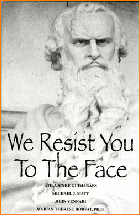 |


